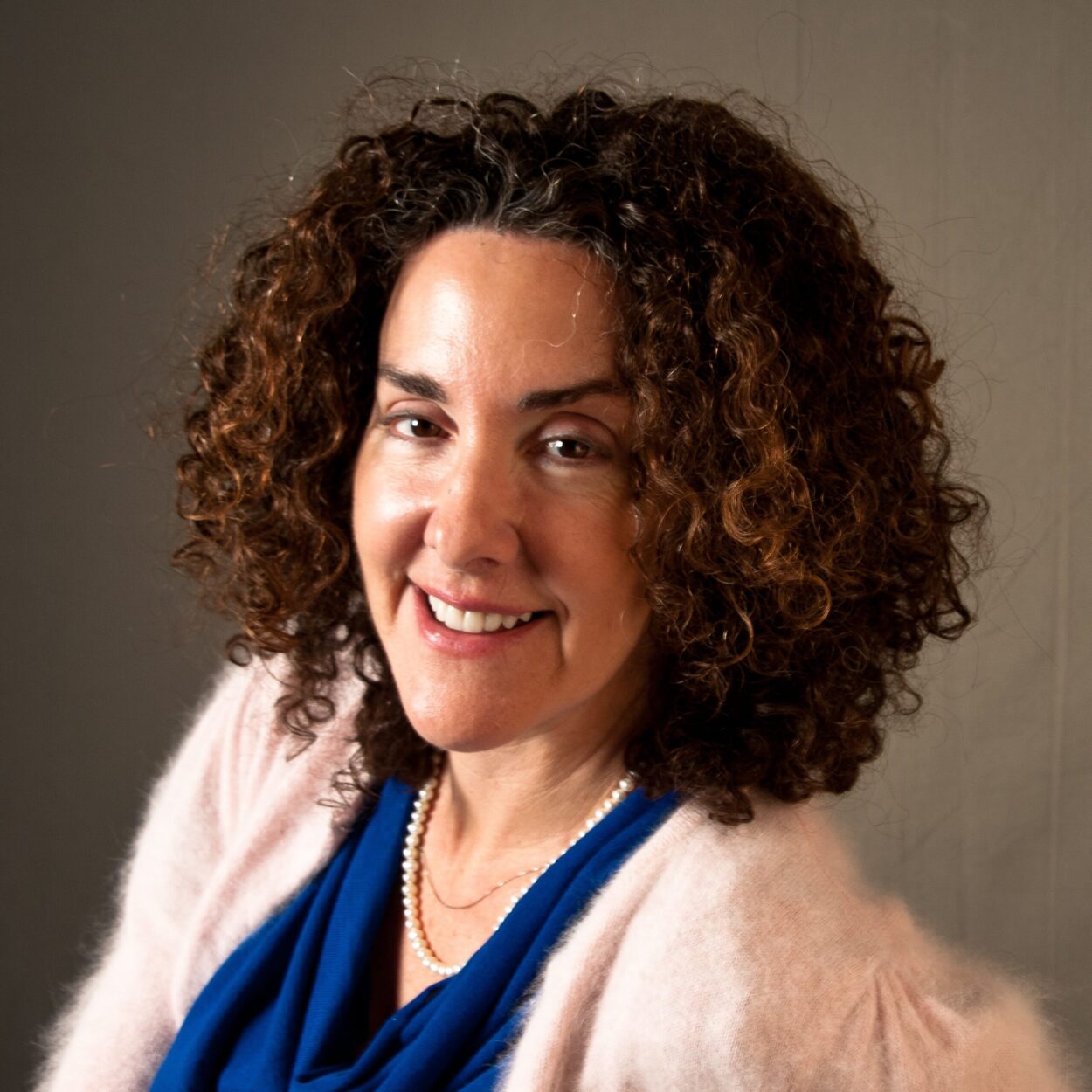Experts Reveal the Alarming Truth About Adult Bullying
Until recently, anti-bullying advocacy has focused primarily on youth. However, adult bullying is on the rise and poses significant risks to our collective mental and physical well-being. As a journalist who has experienced online bullying for years, I sought to better understand the nature and impact of this rise and what, if anything, we can do about it. This article for The Queen Zone results from a series of interviews I conducted with experts in this field.
Why The Rise Of Adult Bullying?
As Richa Bhatia, M.D., wrote for Psychology Today, “A [2021] survey by the American Osteopathic Association showed that 31 percent of individuals in the U.S. reported experiencing bullying as an adult and 43 percent reported that bullying seems to have become more accepted in recent years.” Why the rise of adult bullying?
“Bullies used to be pushed to the fringes of society,” said Bill Eddy, LCSW, Esq., author of the new book Our New World of Adult Bullies and co-founder of the High Conflict Institute in San Diego. Eddy spoke with me about the rise of adult bullying.

Has the ubiquity of the internet and social media ratcheted up bullying behaviors in our culture?
“Absolutely,” Eddy said. “Social media has helped bullies find each other, reinforce each other, and inspire action. They find online groups that encourage each other. They’re feeling supported.”
Eddy said that “pulling the plug on a bully’s behavior,” whether online or in real life, means correcting a “bully’s story (BS)” quickly and firmly. Eddy spoke of “the need to set limits. Speaking up is very much part of that. Don’t assist the bully by staying quiet.” But he added an important cautionary note: “Stay safe.”
When facing a bully’s “unrestrained aggressive behavior, don’t let yourself become isolated. There’s strength in numbers,” Eddy said.
Bullying Hurts Our Brains
When Jennifer Fraser, Ph.D., was told that the abuse done to her son and other teen athletes was “just old school coaching,” she put bullying into the arena with psychology, psychiatry, and ultimately neuroscience to see what the research said. She was shocked to discover that brain scientists have been documenting on scans for the last twenty years the physical damage and neurological scars done to the brain by all forms of bullying and abuse.
After conducting extensive research, Dr. Fraser went on to author the book The Bullied Brain and the forthcoming book, Shattered Brains: How Gaslighting Impacts Our Minds & Proven Ways to Stay Safe & Sane (Prometheus Books/ Rowman & Littlefield, Fall 2025).
In my interview with Dr. Fraser, she told me “Research shows that bullying hurts all our brains, including the brain of the adult bully.” She messaged, “Non-invasive technology, such as EEG, MRI, fMRI document the physical damage to brains by non-physical bullying behaviors.”
The Damage of The Silent Treatment, Ostracization and Lies

The 2021 survey by the American Osteopathic Association “found a quarter of adults have experienced the ‘silent treatment’ from an individual or group on a repeated basis as an adult, while about one-in-five have had someone spread lies about them that no one refutes.”
Dr. Bhatia wrote: “Adult bullying includes spreading malicious, false rumors about the target; turning social alliances against the target by painting a negative picture of them; putting down or silencing the target in front of others,” and “The target is often not in a position of being able to defend themselves easily as there may be an actual or a perceived power imbalance of some sort (such as being newer in a social circle).”
Dr. Fraser messaged, “In bullying scenarios, the second lie frequently occurs when the perpetrator is called to account for their harmful behavior. The second lie takes the form of denial. This lie frequently grows to announce the perpetrator is in fact the victim. Although mind-bending, this lie states that the perpetrator is the one who in fact is being bullied. As the lies grow further, the perpetrator claims that they are the target of a witch-hunt.”
“Anyone who tries to speak up gets retaliated against.” She added, “The more public you go, the bigger you go, the safer you are. You are in danger by allowing a false narrative to circulate.” She added, “Speak up, get as big and loud as you can. Our brains are wired for repetition. So you have to speak up to counter the bully’s repetition of their false narratives.”
Enablers and bystanders serve to empower the bully. Dr. Fraser said of enablers who see the bully’s attacks and tell themselves, “’I don’t want to be the target of that.’” Sometimes, the enablers will join the bully in further attacks when the target speaks up, engaging in victim blaming.
Dr. Fraser writes, “Neuroscientists study the way in which pain is designed to alert you to harm being done to both brain and body. Pain circuits in your brain get activated by a broken bone, but they also activate if you’re excluded from a social gathering or a meeting at work.”
Education Can Combat Bullying
The best prevention, Dr. Fraser said, is to “get informed and prevent bullying from happening in the first place. Learn how your brain is susceptible. We need education and awareness.” Other experts agree that education is essential to raising awareness of bullying and enabling.
Cult expert Steven Hassan, Ph.D., Founder and Director of the Freedom of Mind Resource Center and author of Combating Cult Mind Control, agrees with Dr. Fraser. He told me in an interview, “What we need on this planet is psycho-education.”
Dr. Hassan developed the Influence Continuum™ and BITE Model™ (Behavior, Information, Thought, and Emotional control) to assess and discern authoritarian influence. Dr. Hassan stressed the importance of “healthy upstanders – as opposed to a bystander who watches abuse and does nothing.” Dr. Hassan said, “If you see someone being bullied, ask yourself, ‘If that were me, what would I want other people to do?’ If you put yourself in the other person’s shoes, then you’re obligated to help.”
Dr. Hassan said that bullying is a childish one-upmanship. The bully thinks, “‘I’m better than you, so I can abuse you emotionally for my gratification.’” He added, what’s important is “educating people to care about each other, to develop empathy and compassion. Let’s be considerate and respectful. Find common ground, be curious about others’ experiences – even people you don’t agree with.”
Online Bullying Can Segue Into Real-Life Danger
Dr. Peter Hotez, recently named a 2024 TIME 100 Health influencer, is a pediatrics and molecular virology professor at Baylor College of Medicine in Houston, Texas, and co-director of the Texas Children’s Hospital Center for Vaccine Development. He was a 2022 Nobel Peace Prize nominee for helping develop two COVID-19 vaccines administered more than 100 million times in India and Indonesia. In 2023, “abuse showed up on his doorstep” when a man appeared at Hotez’s home, shouting questions.

Photos by Michael Stravato for Rice University’s Baker Institute for Public Policy
Dr. Hotez messaged me, saying, “I’m bullied not as an individual but because I’m a vaccine scientist, a category deemed a public enemy by the far right, and because I pointed out how specific elected officials and Fox News contributed to the deaths of Americans by encouraging them not to take a Covid vaccine. It’s the subject of my Deadly Rise of Antiscience. Hence, any bullying is in response to two U.S. Senators, some members of the House Freedom Caucus and the Murdoch media empire – Fox and WSJ Opinion – podcasters and Elon Musk, targeting me as their political enemy.” Dr. Hotez regularly posts fact-checks on X in response to lies about him.
Other online users, who are not as high profile, are understandably intimidated by seeing attacks on social media, and stay silent.
This fear drives people out of some of the most critical conversations about social issues and can lead to the wrong impression about where public opinion actually lies.
RENÉE Diresta
Renée DiResta is the author of the new book Invisible Rulers: The People Who Turn Lies into Reality and a research manager at the Stanford Internet Observatory, a cross-disciplinary program of research, teaching, and policy engagement for studying abuse in information technologies. Her work examines rumors, manipulation and propaganda in the digital age.
DiResta messaged me: “People on social media see the harassment that hits those who get targeted and it creates a chilling effect. It’s not only major public figures – sometimes, it’s a school teacher, nurse, or librarian who happens to post a message that someone else finds offensive. And they wonder: is it worth speaking up if it puts you, your family, or your reputation at risk? This fear drives people out of some of the most critical conversations about social issues and can lead to the wrong impression about where public opinion actually lies.”
Journalists Are Targets of Bullies

On June 4th, Elon Musk, owner of X (formerly Twitter), turned his 186 million followers against CNBC journalist Lora Kolodny, who reported factually about Tesla. Musk posted on X, calling Kolodny a “liar.”
Former President Donald Trump’s repetition of “fake news,” discrediting journalists and news outlets, echoes the Nazi cry of “Lugenpresse,” meaning “lying press.” Musk has taken up the rallying cry, attacking mainstream media, while X offers fertile ground for the spread of disinformation.
Bullying journalists is an enormously dangerous societal problem and continues to ramp up. In 2018, I wrote for Rantt Media about then-President Trump praising the assault of a journalist. At a Montana rally, Trump applauded Republican Congressman Greg Gianforte for body-slamming The Guardian reporter Ben Jacobs.
As CNN anchor Jim Acosta tweeted: “The disturbing part of Trump’s jokes about Gianforte was the effect on the crowd. I saw one young man in the crowd making body slam gestures. He looked at me and ran his thumb across his throat. I talked to him after the rally was over. He couldn’t stop laughing.”
As a journalist, online bullying is not foreign to me. In April 2024, NBC News cited my reporting, announcing that carmaker Hyundai had suspended its advertising on Musk’s X. The move came after I identified a Hyundai ad that appeared next to antisemitic posts from a user who has posted pro-Hitler, Nazi content.
The NBC story cited my reporting for the Hill Reporter, which I filed despite being targeted by far-right X influencer Stew Peters (with more than 600,000 followers on X), who had tried to bully me into silence. After I identified other large brands’ ads appearing next to Peters’ antisemitic content on X, he tagged me and Musk saying, “Check out this angry Jewish woman,” and “go crawl back in the sewer where you belong.”
As Bill Eddy advised, I sought “strength in numbers” and garnered public support for my reporting from allies like law professor and former chief White House ethics lawyer Richard Painter and Mark Jacob, former editor at the Chicago Tribune & Sun-Times, author of Stop the Presses, a weekly newsletter.
Litigation is Often Weaponized by Bullies
Musk sued nonprofit watchdog the Center for Countering Digital Hate (CCDH) after the organization identified advertisers’ content appearing next to hateful content on X. CCDH founder and CEO Imran Ahmed told Katie Phang on MSNBC, “He couldn’t find a mistake in our work. Instead, he sued us for the act of doing research. It was vital that we stood up in the face of a bully,” and “we will not be cowed by a bully.”
“Silence is not an option.” So reads the caption on the X page of Jessica Denson. As ProPublica reported at the end of May, Denson has been bullied by the Trump campaign for the past eight years after she complained of workplace harassment.
It is not a secret that Trump uses litigation as a bullying tactic. Earlier this year, the Economist reported, “Donald Trump is ordered to pay for his bullying: A jury awarded E. Jean Carroll $83 million in a second defamation trial.”
Bullying is Not Confined to Politics

But politics is hardly the sole domain of adult bullying. In families, businesses, communities, and online, adult bullying has ratcheted up exponentially. Small businesses and sole practitioners must also be vigilant. Small Biz Technology editorial team advised health care providers:
“Smear campaigns can take on many shapes and forms, and no two are identical. However, they all do share one thing in common, and that’s the end goal of making people doubt your credibility and cause serious harm to you. Even if the mistruths that they spread are outlandish and incredible, that still may not stop people from believing in them.”
“Some people may argue that you shouldn’t ‘stoop to their level’ and that you should keep quiet. This couldn’t be further from the truth. Instead, you should take to social media to directly address the falsehoods and defend yourself and your practice against them. That said, do not respond to them in anger or fling barbs back at your attackers. Remain calm and present the facts as clearly as possible.”
Bill Eddy agrees that calm presentation of the facts is essential. Eddy and his team developed the BIFF Response® method for communicating in writing with high conflict personalities: BIFF is an acronym for: Brief. Informative. Friendly. Firm. Correct the facts and set limits with bullies.
Bullying and Cluster B Personality Disorders
Eddy said, “Bullies have high conflict personalities plus a desire to destroy.” His work with high-conflict personalities is intertwined with his research into Cluster B personality disorders – as identified in the DSM-5 (Diagnostic and Statistical Manual of Mental Disorders, 5th Edition, by the American Psychiatric Association).
In his landmark book on Cluster B personality disorders, 5 Types of People Who Can Ruin Your Life: Identifying and Dealing with Narcissists, Sociopaths, and Other High-Conflict Personalities, Eddy posits: “When a high-conflict person has one of five common [Cluster B] personality disorders—borderline, narcissistic, paranoid, antisocial, or histrionic—they can lash out in risky extremes of emotion and aggression. And once an HCP decides to target you, they’re hard to shake.”
He goes on to explain: “Most bullies have some Cluster B traits, although they may not have personality disorders.” Lack of empathy suggests narcissistic traits; lack of remorse marks antisocial personality disorder (informally known as psychopaths and sociopaths), and lack of emotional self-control correlates with borderline personality traits. “There’s a higher risk of domestic violence, coercive control,” Eddy said. “They’re lacking built-in brakes.” He estimates that five-to-ten percent of people don’t restrain themselves from bullying behavior, so we have to.
The Role of Enablers

Photo credit lev radin via Shutterstock
The role of enablers is significant. Eddy referred to the “power of negative advocates. They are the enablers of high-conflict personalities.” For example, movie mogul and alleged sexual predator Harvey Weinstein, Eddy said Weinstein “had a whole team of lawyers that would come down on someone if they spoke up. Classic bullying. Victims turn against themselves. The bullying activates immobilization and self-anger.” He noted that when Weinstein’s victims banded together, found “strength in numbers,” he was finally held accountable (though Weinstein’s rape conviction was recently overturned, and he’s facing retrial, even as more victims have come forward).
Trickle-down Bullying
Dr. John Gartner is a leading psychologist, psychotherapist, author, activist, and long-time former part-time assistant professor at Johns Hopkins University Medical School. An expert in malignant narcissism, Dr. Gartner co-hosts a weekly podcast “Shrinking Trump” with Dr. Harry Segal, a senior lecturer in psychology at Cornell University. In 2017, Dr. Gartner created the organization Duty To Warn and was joined by thousands of mental health professionals from around the country who felt a duty to warn the population about Trump’s dangerous behavior.
Dr. Gartner spoke with me about Trump’s presumed personality disorder, magnified by his “probable dementia.”

The four tenets of malignant narcissism include anti-social, lying, paranoid, and sadistic behavior. Of Trump’s bullying, Dr. Gartner said, “He feels pleasure, joy from degrading other people, enjoying crushing people. He feels entitled to attack.” He added, “His bullying is more disinhibited with dementia. He has no filter. He’s more erratic, impulsive, lashing out in random and confused ways.”
As for Trump’s impact on our culture, Dr. Gartner said, “As a role model, he has normalized bullying. Other bullies feel empowered to behave in a boorish way.” He said Trump has declared “open season on certain types of people, especially immigrants.”
Dr. Gartner said the term “malignant normality,” coined by Yale psychiatrist Robert Jay Lifton, describes how a malignant narcissist leader can change the values of the culture. Lifton’s research looked at Nazi Germany and asked “how did this happen?” Enablers and bystanders play a major role by normalizing a leader’s bullying.
Women Can Be Bullies, Too

Cheryl Dellasega, NP, Ph.D., is a relational aggression expert, faculty member at the Penn State University College of Medicine, and author of seven nonfiction books, including Mean Girls Grown Up: Adult Women Who Are Still Queen Bees, Middle Bees, and Afraid-to-Bees.
Dr. Dellasega prefers the term “relational aggression” to describe bullying behavior rather than labeling someone a “bully.” In our interview, she said, “It’s easier for someone to change a behavior than a label.”
The role of “Middle Bees,” as Dr. Dellasega calls enablers, can perpetuate the aggressor’s behavior. She said, “The middle person can enable, foster, and facilitate. But at other times they can be silent, dumbstruck. They can speak up, say nothing, or join the aggression. She added that enablers are usually “afraid of the Queen Bee [bully], or manipulated.”
Like the other experts, Dr. Dellasega underscored the impact that social media has had on the rise of relational aggression. She said, “We see a lot [of relational aggression] play out on social media.” She noted a “massive survey” done about twenty years ago by the Girl Scouts of the U.S.A. The Girl Scouts asked girls “if they were meaner online. The answer was ‘Yes.’ There’s disinhibition online. It’s probably worse now,” she said.
I have reported extensively on Women for Trump founder Amy Kremer, organizer of the January 6th rally at the Ellipse in Washington, D.C., that preceded the attack on our nation’s capitol. I have been asked this question repeatedly: How can women in Trump’s circle ignore his misogynistic, abusive behavior (e.g., “grab them by the pussy,” found liable for raping E. Jean Carroll)? Why do the women around him remain silent, complicit?
The prevalence of women enabling male abusers is underscored in domestic violence training circles, as I discovered in a 2016 California state training program for advocates of domestic violence. Historically, for more than 2000 years, women have allied with their male oppressors — it’s a self-protective strategy, an effort to ensure their own safety. Likewise, enablers of bullies are engaging in a misguided attempt to keep themselves safe by allying with the bully.
In Conclusion
Several key takeaways emerge from experts’ advice for addressing bullying:
- Speak up calmly, refute lies.
- Stay safe, find allies; there’s strength in numbers.
- Be a “healthy upstander,” not a silent bystander.
- Be curious about other people; foster empathy, compassion, and understanding.
- Become educated.
Voices matter.
Former CNN anchor Brooke Baldwin recently wrote about her experience “finding her voice” in a piece for Vanity Fair, describing why she left CNN: “The word gaslighting has become so cliché, but that’s what it felt like. Manipulation. Bullying.”
As Baldwin posted on X: “Also we must *name* the ‘thousand little cuts’ that so many of us have experienced and continue to call it out. I didn’t think my story was worthy of telling. I wasn’t part of the movement that was #metoo. It took me years to realize — my story does matter. And so does yours and yours and YOURS.”
Looking For The Books Mentioned In This Article?
This post may contain affiliate links. Please see our disclosure policy for details.
If you are reading this on MSN Start please click here for recommended books.
Last update on 2024-10-22 / Affiliate links / Images from Amazon Product Advertising API















